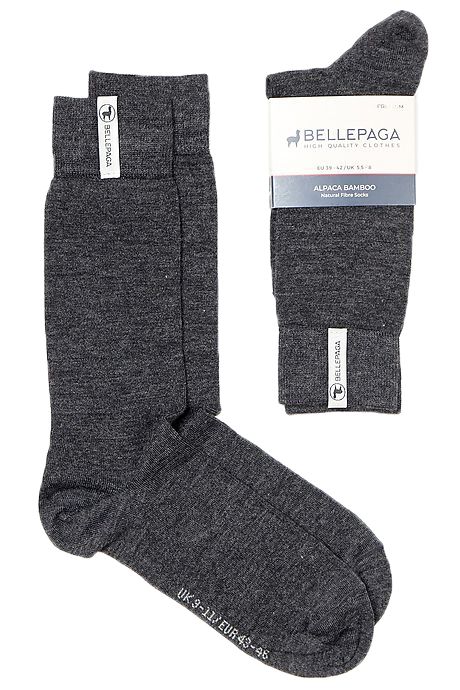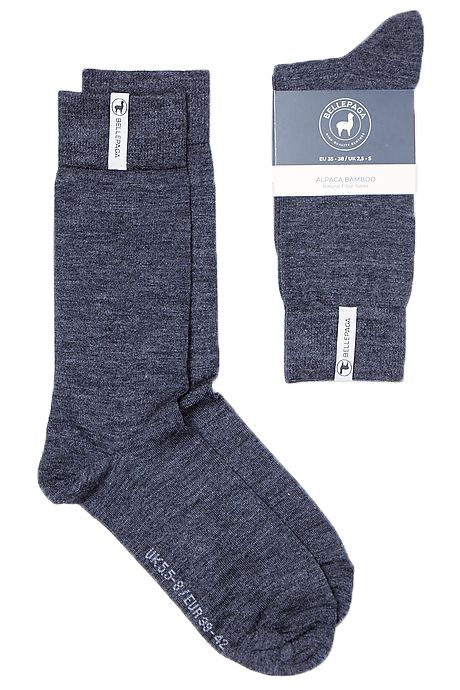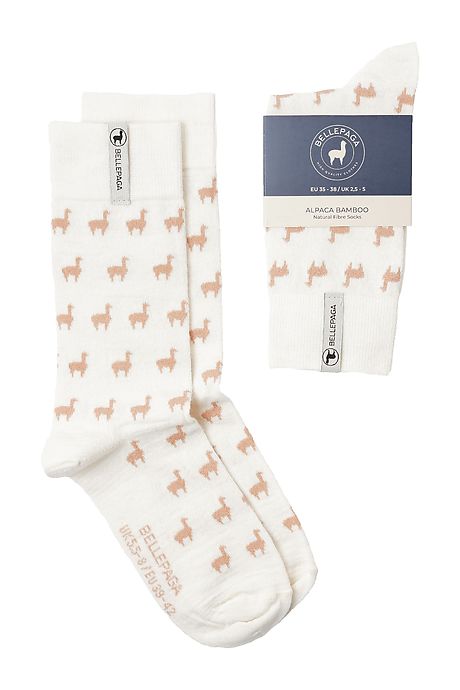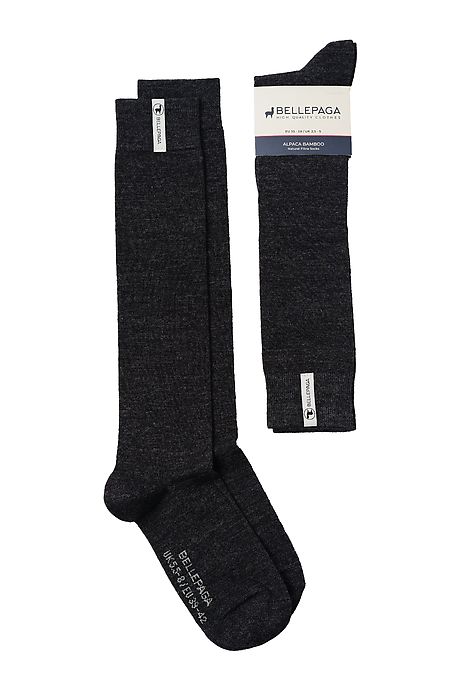Why Alpaca Wool Socks Are Better Than Cashmere Socks
Why Alpaca Wool Socks Are Better Than Cashmere Socks
In the world of luxury clothing, few items garner as much attention as wool socks. Among the most prized options, cashmere socks and alpaca wool socks stand out for their softness, warmth, and comfort. However, while cashmere socks are often considered the ultimate standard, alpaca wool socks offer several advantages that make them a superior choice. This article examines in detail why alpaca wool socks surpass cashmere socks in terms of comfort, durability, practicality, and environmental impact.
Alpaca Fiber: Unmatched Softness
Softness is one of the main criteria when choosing luxury socks. Cashmere socks are famous for their soft and silky texture, but alpaca wool socks are not far behind. In fact, alpaca fiber is often compared to cashmere in terms of softness, and many people find it even more pleasant to the touch. Alpaca fibers are naturally fine and smooth, giving them a silky and delicate feel on the skin.
Thermal Comfort
One of the most important aspects of winter socks is their ability to keep your feet warm. Cashmere socks are well-known for their warmth, but alpaca wool socks offer superior thermal insulation. Alpaca fibers have a hollow structure, which allows them to retain more warm air and improve insulation. This means that alpaca wool socks can keep your feet warmer even in extreme cold conditions.
Resistance to Wear and Tear
One of the main differences between cashmere socks and alpaca wool socks is their durability. While cashmere is delicate and prone to wearing out quickly, alpaca fibers are more robust and resistant. Alpaca wool socks are less likely to deform or tear, even after many washes and frequent use. This increased resistance to wear and tear means that alpaca wool socks have a longer lifespan, making them more cost-effective in the long run.
Pilling Resistance
Pilling is a common problem with many types of natural fibers, including cashmere. Cashmere socks tend to form pills after several uses, which can affect their appearance and comfort. In contrast, alpaca fibers are less prone to pilling. This means your alpaca wool socks will remain smooth and attractive longer, even after many washes.
Ease of Washing
Maintaining luxury wool socks can be challenging. Cashmere socks often require delicate hand washing and flat drying to avoid damage. In comparison, alpaca wool socks are much easier to maintain. They can generally be machine washed in cold water and dried flat without risking shrinking or deforming. This ease of care makes alpaca wool socks more practical for everyday use.
Natural Odor Resistance
Another advantage of alpaca wool socks is their natural odor resistance. Alpaca fibers have antibacterial properties that prevent the formation of unpleasant odors, even after a long day of wear. Cashmere socks, while comfortable, do not have this intrinsic feature and may need more frequent washing to maintain their freshness.
Sustainable Production
Sustainability is an increasingly important aspect for environmentally conscious consumers. While cashmere socks are luxurious, they have a significant environmental impact due to the intensive breeding practices required to produce cashmere. Cashmere goats need large amounts of food and water, and their breeding can lead to the desertification of pastures.
In contrast, alpacas have a much lower environmental impact. They have modest food requirements, and their soft hooves do not damage pastures. Moreover, alpacas produce a significant amount of wool per animal, making the production of alpaca wool more sustainable and less harmful to the environment.
Ethical Production
The ethics of production is another crucial aspect. The working conditions in cashmere-producing regions are not always ideal, and it can be challenging to ensure fair trade practices. Many alpaca wool brands, such as BellePaga, on the other hand, work directly with breeding communities in South America, ensuring fair wages and good working conditions. By choosing alpaca wool socks, you support ethical practices and contribute to the well-being of local communities.
Hypoallergenic Properties
Cashmere socks, while extremely soft, can sometimes cause allergic reactions in people sensitive to lanolin, a natural substance present in many animal fibers. Alpaca fibers, however, do not contain lanolin, making them hypoallergenic. This means that alpaca wool socks are a better option for those with sensitive skin or allergies to traditional animal fibers.
Breathability and Temperature Regulation
Alpaca wool socks also offer excellent breathability. Alpaca fibers allow good air circulation, helping to regulate the temperature of your feet. This means that, even if you wear alpaca wool socks all day, your feet will not feel stifled or overheated. Cashmere socks, while warm and comfortable, do not offer the same level of breathability, which can lead to clammy and uncomfortable feet in certain conditions.
Wide Range of Styles and Colors
Alpaca wool socks come in a variety of styles and colors, making it easy to find a pair that matches your personal taste and needs. Whether you prefer neutral and classic colors or more vibrant and bold hues, there is an option for every preference. Cashmere socks, while elegant, can be more limited in terms of available styles, which may restrict your fashion choices.
Adaptability to Various Occasions
Alpaca wool socks are versatile enough to be worn on various occasions. Whether for a relaxed day at home, an outdoor outing, or even a more formal event, these socks add a touch of sophistication while offering superior comfort. Cashmere socks are also versatile, but their delicate nature can make them less practical for intensive daily use.
Long-Term Investment
While cashmere socks are often seen as the pinnacle of luxury, they can be expensive and require special care to maintain their quality. Alpaca wool socks, although sometimes slightly more expensive at initial purchase, offer better value for money in the long term due to their durability and low maintenance costs. The investment in alpaca wool socks can prove to be more advantageous over time, as they require less frequent replacement than cashmere socks.
Perceived Value and Customer Satisfaction
The perceived value of alpaca wool socks is often very high among consumers who have tried them. Customer testimonials frequently highlight the combination of comfort, warmth, and durability, resulting in overall high satisfaction. Cashmere socks, while also highly appreciated, can sometimes disappoint in terms of longevity and ease of maintenance.
In conclusion, while cashmere socks have rightfully earned a reputation for luxury and comfort, alpaca wool socks offer several distinct advantages that make them superior in many aspects. From unparalleled softness and comfort to increased durability, ease of care, and positive environmental impact, alpaca wool socks represent a wiser choice for those seeking high-quality socks.
By opting for alpaca wool socks, you invest not only in a durable and comfortable luxury product but also support ethical and environmentally friendly production practices. Whether you are looking to add a touch of elegance to your winter wardrobe or find the perfect gift, alpaca wool socks are undoubtedly a better option than cashmere socks. Discover for yourself the many benefits of alpaca and make a conscious choice for lasting comfort and style with BellePaga.
-
Sami Premium Socks - Classic
- 35 - 38
- 39 - 42
- 43 - 46
-
Incas Socks - Classic
- 35 - 38
- 39 - 42
- 43 - 46
-
Yupa Socks - Classic
- 35 - 38
- 39 - 42
- 43 - 46
-
Socks Sami Premium - High
- 35 - 38
- 39 - 42
- 43 - 46
-
Sami Premium Socks - Classic
- 35 - 38
- 39 - 42
- 43 - 46


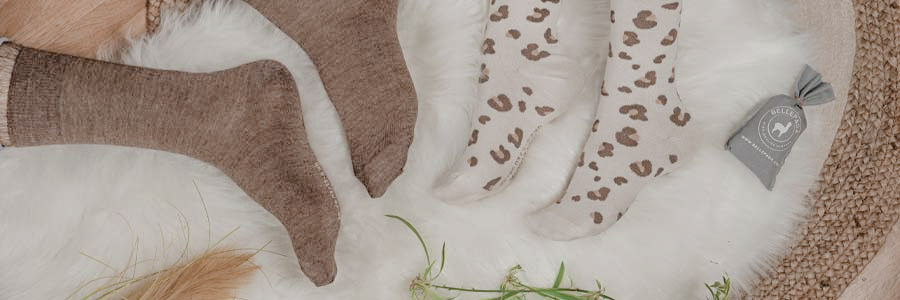
.png)
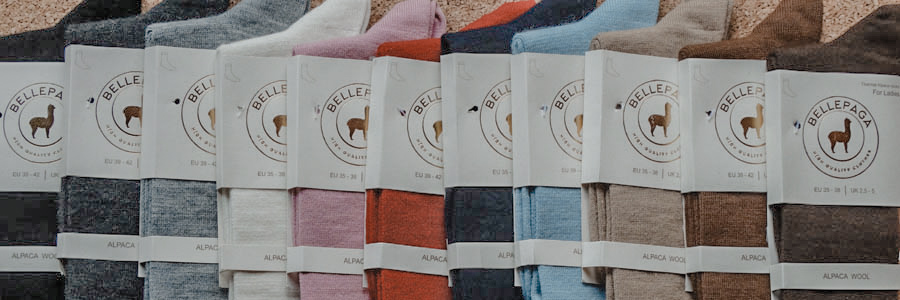
.png)
